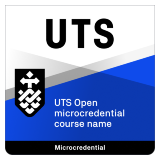Online activities provide comprehensive information of the current knowledge in the subject area to support your learning in this microcredential and prepare you for working in field locations.
Field-based learning provides you with the opportunity to experience real world situations and develop the expertise in skills sought after by government agencies and industry groups.
As part of your training, you will attend a field trip to a waterway site in New South Wales and learn sampling techniques to measure the water quality and indicators of biological health in aquatic systems from a leading Australian expert. The samples collected on the field trip will be analysed and this data will form the basis of your report assessing the water quality risks at the site using guidelines and suggest management recommendations.
All information and professional experience are synthesised, so you are able to professionally assess the water quality of the site and then communicate their findings in the form of a written report following current professional standards.














